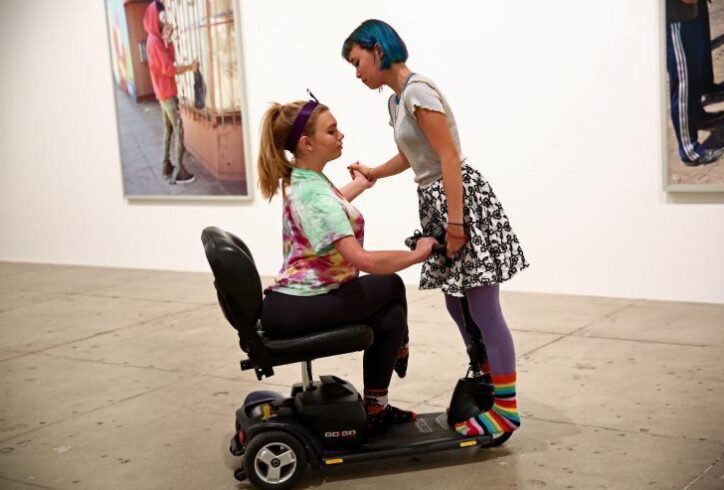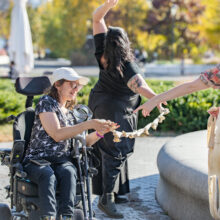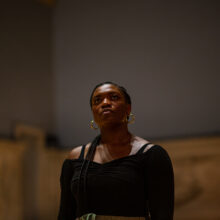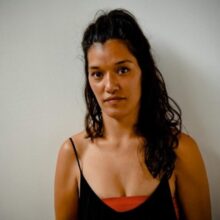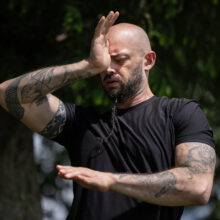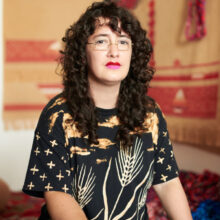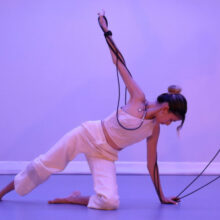Who We Are
The Accessibility Advisory Team (AAT) is a cohort of disabled artists advising Movement Research on Equity, Accessibility, and Inclusion across its departments and platforms.
The Members meet once every six weeks to share their invaluable experience on justice, sustainability, resilience, artistry, and activism, centering on the needs of the disabled communities from the lens of Disability Justice.
The AAT recognizes intersectionality and parallel systems of oppression experienced by Disabled, Chronically Ill, Immunocompromised, d/Deaf, Queer, Trans, Immigrant, Black, Indigenous, People of Color and factors such as socioeconomic status, spirituality, language, literacy, and education -among others- on an institutional, social and political level. Therefore, the AAT aims to build Cross-Disability solidarity to reflect critically on the past, present, and future of Disability in the Arts.
The AAT Aims To...
- Create, support, or improve opportunities and spaces for disabled artists, curators, audiences, cultural and access workers that are long overdue.
- Raise Disability Awareness and educate Movement Research staff, Faculty, AIRs, and the community at large on best accessibility and inclusion practices.
- Promote a disability-centered space where disabled artists can feel empowered to tell their stories, collaborate and learn from one another to confront systemic ableism and oppression.
- Raise Disability Awareness and educate Movement Research staff, Faculty, AIRs, and the community at large on best accessibility and inclusion practices.
- Promote a disability-centered space where disabled artists can feel empowered to tell their stories, collaborate and learn from one another to confront systemic ableism and oppression.
Educational Resources on Accessibility
The following Educational Resources on Accessibility have been curated by the Accessibility Advisory Team. This list will continue to grow and expand as advisors join the AAT.
We encourage you to engage with these materials by reading on your own, discussing with peers, colleagues, and co-workers, and creating collective study groups inside institutions and organizations. It is important to honor and remunerate the labor of the authors, please PAYBACK to the people who have created these resources:
- Carolyn Lazard. Accessibility in the Arts: A Promise and a Practice.
- Crip Camp Curriculum.
- POC Online Classroom: Disability Justice.
- Sins Invalid. Ten Principles of Disability Justice.
- Walden, Romily Alice. A primer on working with disabled group members.

